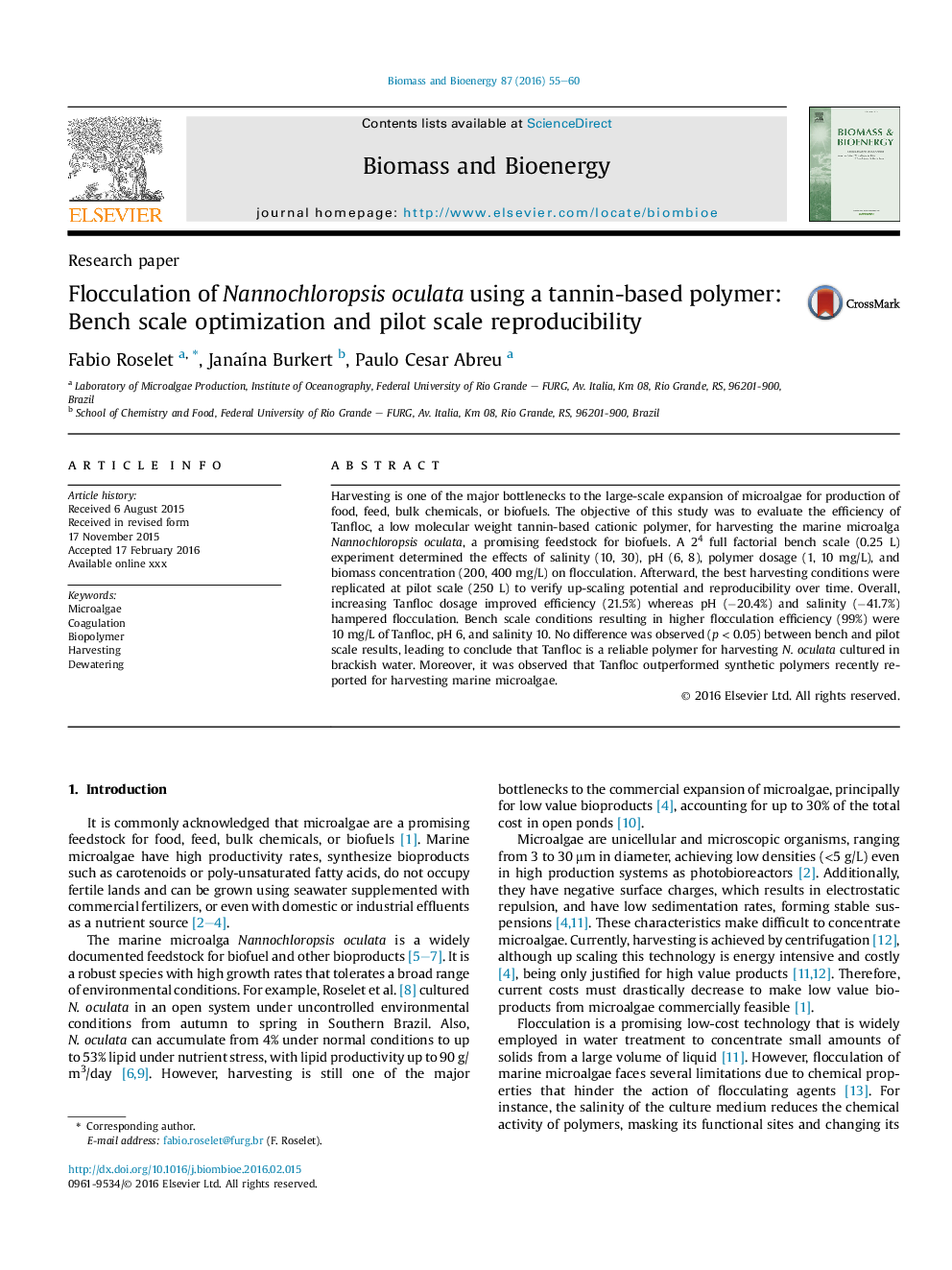| Article ID | Journal | Published Year | Pages | File Type |
|---|---|---|---|---|
| 7063382 | Biomass and Bioenergy | 2016 | 6 Pages |
Abstract
Harvesting is one of the major bottlenecks to the large-scale expansion of microalgae for production of food, feed, bulk chemicals, or biofuels. The objective of this study was to evaluate the efficiency of Tanfloc, a low molecular weight tannin-based cationic polymer, for harvesting the marine microalga Nannochloropsis oculata, a promising feedstock for biofuels. A 24 full factorial bench scale (0.25 L) experiment determined the effects of salinity (10, 30), pH (6, 8), polymer dosage (1, 10 mg/L), and biomass concentration (200, 400 mg/L) on flocculation. Afterward, the best harvesting conditions were replicated at pilot scale (250 L) to verify up-scaling potential and reproducibility over time. Overall, increasing Tanfloc dosage improved efficiency (21.5%) whereas pH (â20.4%) and salinity (â41.7%) hampered flocculation. Bench scale conditions resulting in higher flocculation efficiency (99%) were 10 mg/L of Tanfloc, pH 6, and salinity 10. No difference was observed (p < 0.05) between bench and pilot scale results, leading to conclude that Tanfloc is a reliable polymer for harvesting N. oculata cultured in brackish water. Moreover, it was observed that Tanfloc outperformed synthetic polymers recently reported for harvesting marine microalgae.
Related Topics
Physical Sciences and Engineering
Chemical Engineering
Process Chemistry and Technology
Authors
Fabio Roselet, JanaÃna Burkert, Paulo Cesar Abreu,
